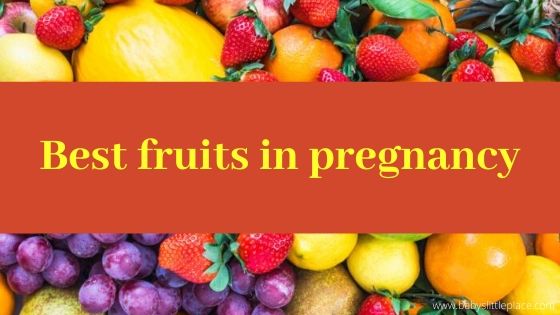
Although all fruit is healthy, there are some fruits that are particularly beneficial for a pregnant woman and her baby. In this article, I want to cover why is important to eat fruit during pregnancy and which are the best fruits in pregnancy.
Healthy nutrition during pregnancy is very important for pregnant women and proper fetal’s growth and development. A healthy pregnancy diet includes lots of fruits, vegetables, proteins, healthy carbohydrates, and the right fats.
Fruit does contain sugar, but it is far from being the same as candies. It contains different sugar and therefore digests differently, binds more slowly in the body, and contains a lower calorific value. And most important, fruits contain lots of essential nutrients for a pregnant woman and the fetus.
Best fruits in pregnancy
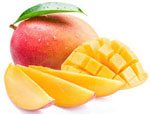
Mango can be a delicious lettuce substitute, which will delight those pregnant women who don’t like vegetables. A slice of mango has more vitamins C and A than a bite of lettuce, and also contains a lot of potassium.
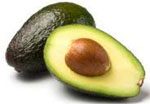
Avocado is a rich and tasty source of vitamins. It contains a lot of folic acids, potassium, vitamin C, and vitamin B6. These substances are necessary for a fetus’s healthy brain, spine, nervous system, and heart development. Avocado also soothes the morning sickness.
However, since avocado is high in calories and fat, which is actually a healthy fat, pregnant women should consume it in moderation anyway.
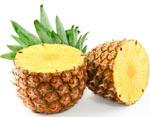
Pineapple is rich in vitamin C, beta-carotene, and minerals such as potassium and magnesium. However, eat it in moderate amounts, as it may cause inflammation of the oral mucous.
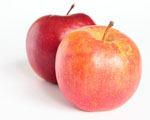
Apples reduce the risk of developing asthma in the baby. Eat them with the peel! It contains a lot of vitamin C and potassium.
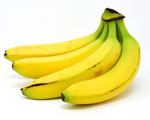
Banana is a good source of vitamin B6 and folic acid. It has a very high proportion of potassium and magnesium. Eat them in moderate amounts, because they cause weight gain.
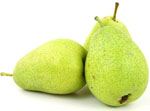
Pears reduce water retention and have a rich content of vitamin A, folic acid, and potassium. You should eat pear along with peel to consume more fiber.
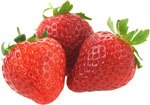
Strawberries have a high amount of folic acid and are great for pregnant women. They are also rich in vitamin C and a good source of potassium, calcium, magnesium, and phosphates.

Blueberries contain lots of vitamin E and C, beta-carotene, folic acid, potassium, calcium, and iron. Fresh blueberries work anti-inflammatory and stimulate the immune system, while dried blueberries help with diarrhea.
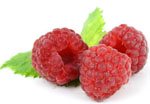
Raspberry help to regulate a sufficient amount of iron. They are rich in vitamins E and C, folic acid, potassium, calcium, and magnesium.
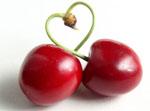
Cherries are rich in beta-carotene, vitamin C, folic acid, potassium, calcium, phosphorus, and iron. But be aware that excessive quantities cause a laxative effect.

Mandarins are rich in vitamin C, beta-carotene, potassium, calcium, and phosphates. Their essential oils help to reduce morning sickness.
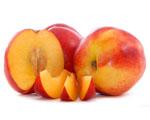
Peaches work diuretically and care for a good mood. They are rich in vitamin E, potassium and phosphates.
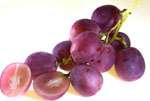
Grapes contain a lot of folic acid, potassium, calcium, and phosphates. But due to the high fructose content, it is high in calories, so eat it in moderate amounts.
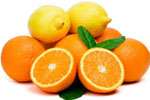
Lemons and oranges contain a lot of vitamin C, potassium, calcium, magnesium, phosphorus and iron.
Are dried fruits healthy in pregnancy?
Dried fruits are usually high in calories but contain important vitamins, minerals, and fiber. A piece of dried fruit holds exactly the same amount of nutrients as fresh, but it does not contain as much water, making it smaller than fresh. Therefore, a serving of dried fruit provides a large percentage of the recommended daily intake of vitamins and minerals, including folic acid, potassium, and iron.
Dried fruits are high in natural sugar, so pregnant women should avoid the variants with added sugar, like candied fruits. Due to its high-calorie content, pregnant women should eat it in moderation. It is recommended to consume no more than one portion per day.
Which dried fruits are best during pregnancy?
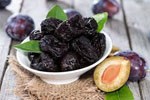
Dried prunes are rich in dietary fiber, potassium, vitamin K, and sorbitol. Dried prunes are a mild natural laxative that works against constipation.

Dates are high in iron, potassium, fiber, and many other beneficial nutrients for pregnant women. Regular intake of dates during the third trimester can benefit the cervix and reduce the likelihood of having premature childbirth.

Due to the supply of the embryo and placenta, the blood volume of a pregnant woman increases. That also increases the need for iron. It’s recommended that a pregnant woman eat iron-rich foods, such as dried apricots, raisins, dried coconut, dried pears, and dried fig.
Dried apricots also contain the following vitamins: B, B2, A, and vitamin C.
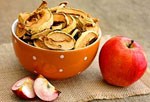
Dried apples are rich in fiber and potassium. Eating dried apples improves bowel and muscle function, and controls blood pressure.
Benefits of Eating Dry Fruits during pregnancy:
- Hormonal changes in pregnancy can lead to constipation. Dietary fibers in dry fruits help prevent such problems.
- Due to the supply of the embryo and placenta, the blood volume of a pregnant woman increases, which raises the need for iron. Dry fruits like dried apricots, dried figs, and dates help a pregnant woman meet her daily iron requirements.
- Dried fruits such as dried apples contain potassium, which helps control blood pressure and enhance muscle control.
- Lots of dried fruit is rich in Vitamin A, which is necessary for the baby’s teeth and bones development.
